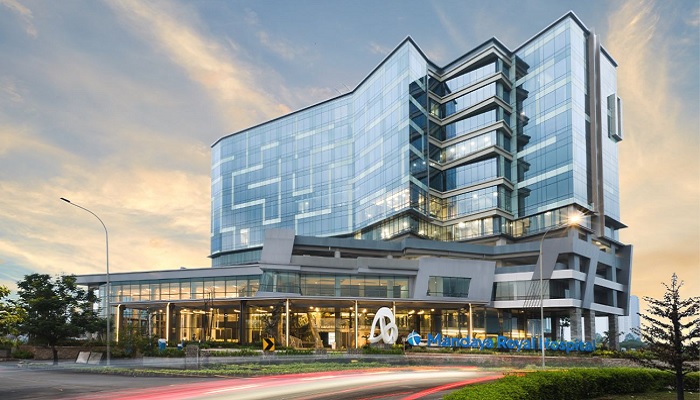Stage 4 signifies that liver cancer has advanced beyond the liver cells, reaching lymph nodes and blood vessels. At this stage, cancer cells may also be found in organs far from the liver (metastasis). The primary goal of liver cancer treatment at this stage is to alleviate symptoms and improve the patient’s comfort.
Contents
Cancer Staging Indicators
Doctors typically assess cancer using the TNM system:
- T (Tumor): Determines the tumor size.
- N (Nodes): Indicates cancer presence in lymph nodes.
- M (Metastasis): Shows whether cancer has spread to distant organs or lymph nodes.
At stage 4, cancer cells are large, present in the lymph nodes, and have spread to other organs (metastasis).
Early symptoms of liver cancer are often subtle, making early diagnosis difficult. As a result, liver cancer is often detected at an advanced stage.
Symptoms of Stage 4 Liver Cancer
Common symptoms of stage 4 liver cancer include:
- Abdominal pain
- Pain near the right shoulder blade or upper abdomen
- Loss of appetite, weight loss, or nausea
- Swollen or bloated abdomen
- Yellowing of the skin and eyes (jaundice)
- Persistent fatigue or weakness
- Unexplained fever
Treatment for Stage 4 Liver Cancer
Stage 4 liver cancer is generally incurable. However, with proper treatment, life expectancy can be extended.
The primary goal of stage 4 cancer treatment is to control its spread, reduce symptoms, and improve the patient’s quality of life. Treatment options include:
- Chemotherapy: Uses medication to kill cancer cells or stop their growth, administered orally, via infusion, or implant.
- Radiotherapy: Uses radiation to destroy cancer cells or shrink tumors.
- Targeted Therapy: Focuses on specific molecules involved in cancer growth and spread, often using specialized drugs.
- Immunotherapy: Helps train the immune system to fight cancer.
- Surgery: In some cases, surgery may be performed to remove the tumor or relieve symptoms.
Life Expectancy for Stage 4 Liver Cancer
According to Cancer Research, only about 5% of liver cancer patients survive for four years or more after diagnosis. However, with proper treatment, some patients can live longer than expected.
Life expectancy depends on several factors, including the patient’s overall health, the body’s response to treatment, and the treatment itself. Consult your doctor to determine the best course of action for your condition.
Support for Stage 4 Liver Cancer Patients
Care for stage 4 cancer patients extends beyond medical treatment. Emotional and psychological support is equally important. Recommended support measures include:
- Family and Friends: Emotional support and assistance with daily activities.
- Counseling and Therapy: Psychological counseling can help patients cope with stress, anxiety, and depression.
- Support Groups: Connecting with other cancer patients for shared experiences and emotional support.
- Palliative Care: Focuses on symptom management and improving quality of life.
Although the exact cause of liver cancer is unknown, adopting a healthy lifestyle and consuming a balanced diet can reduce the risk.
When to See a Doctor?
The effectiveness of liver cancer treatment depends on the stage of the disease and the patient’s overall health. The sooner liver cancer symptoms are detected, the higher the chances of better outcomes.
If you have liver concerns, don’t hesitate to consult with Mandaya Hospital. Our Digestive & Liver Clinic provides top-quality liver care, from treatment to surgical procedures, supported by experienced specialists and advanced medical equipment.
Liver Cancer Specialist Team at Mandaya Royal Hospital Puri
In addition to its advanced Digital PET CT Scan, Mandaya Royal Hospital Puri is supported by a comprehensive team of specialists experienced in diagnosing and treating liver cancer. These include:
1. Prof. Dr. dr. Toar Jean Maurice Lalisang, Sp.B. Subsp.BD (K)

Prof. Toar Lalisang is a Digestive Surgeon practicing at Mandaya Royal Hospital Puri. He completed his medical degree, surgical residency, digestive surgery subspecialty, and doctoral program at the University of Indonesia. He is also an active member of the Indonesian Society of Digestive Surgeons (IKABDI).
With extensive experience in digestive surgery and liver diseases, Prof. Toar is recognized as one of Indonesia’s leading experts in digestive procedures and liver transplantation. His achievements have been acknowledged through prestigious awards such as the Bakti Karya Husada Tri Windu and Satyalancana Karya Satya.
Prof. Toar has strong expertise in liver cancer surgery, and he recently led a successful laparoscopic liver cancer resection in segment 6 together with the hospital’s digestive surgery team.
Clinic schedule:
- Tuesday: 15:30 – 17:30
- Thursday: 15:30 – 17:30
- Saturday: 11:00 – 13:00
2. dr. Ocsyavina, Sp.B. Subsp.BD (K)

Dr. Ocsyavina is a Digestive Surgeon who also practices at Mandaya Royal Hospital Puri. She graduated from Universitas Padjadjaran and completed both her general surgery residency and digestive surgery subspecialty at the University of Indonesia.
She recently assisted Prof. Toar in a laparoscopic resection of liver cancer in segment 6, demonstrating strong clinical expertise.
Clinic schedule:
- Monday–Friday: 16:00 – 18:00
- Saturday: 10:00 – 12:00
3. dr. Sugianto Santoso, Sp.Rad (K)RI

Dr. Sugianto is a Radiologist with advanced expertise in interventional radiology, performing minimally invasive procedures guided by imaging. For liver cancer and hepatic nodules, he performs TACE (Transarterial Chemoembolization), Radiofrequency Ablation (RFA), and Microwave Ablation (MWA).
During TACE procedures, he inserts a catheter from the groin into the hepatic arteries, then advances a microcatheter close to the tumor to deliver chemotherapy directly into the lesion.
Clinic schedule:
- Tuesday: 16:00 – 20:00
- Thursday: 16:00 – 20:00
4. dr. Hendra Koncoro, Sp.PD-KGEH

Dr. Hendra Koncoro is an Internist and Gastroentero-Hepatology Consultant who manages hepatitis, cirrhosis, liver cancer, fatty liver disease, gallstones, and other liver conditions.
He has attended various international trainings, including Cedars-Sinai (USA), ACG Annual Meetings, Singapore’s NUH IBD Program, and the World Congress of Gastroenterology.
Clinic schedule:
- Wednesday: 10:30 – 12:30
- Saturday: 10:30 – 12:30
5. dr. Hendra Nurjadin, SpPD-KGEH

Dr. Hendra Nurjadin is an Internal Medicine Specialist experienced in treating liver cancer and a wide range of digestive disorders, including gastritis, gastric ulcers, IBS, pancreatitis, hepatitis, and gastrointestinal tumors. He is known for his clear communication and patient-centered care.
Clinic schedule:
- Tuesday: 15:00 – 17:00
- Thursday: 15:00 – 17:00
Recommended Doctors for Liver Cancer Chemotherapy
Mandaya Royal Hospital Puri also provides comprehensive chemotherapy services supported by experienced medical oncologists:
1. Prof. DR. Aru W. Sudoyo, Sp.PD-KHOM, FINASIM, FACP

A highly respected medical oncologist with extensive experience in chemotherapy, immunotherapy, and targeted therapy for various cancers.
Clinic schedule:
- Wednesday: 08:00 – 12:00
2. dr. Toman T.J Lumban Toruan, Sp.PD-KHOM

A medical hematology-oncology specialist with broad experience in treating cancer patients, including providing advanced therapies such as CAR T-cell therapy.
Clinic schedule:
- Tuesday: 12:00 – 15:00
- Thursday: 12:00 – 15:00
3. dr. Alvin Tagor Harahap, Sp.PD-KHOM

Dr. Alvin specializes in chemotherapy, immunotherapy, targeted therapy, and CAR T-cell therapy for various cancer types.
Clinic schedule:
- Wednesday: 18:00 – 20:00
- Saturday: 10:00 – 12:00
For Our International Patients

Mandaya Royal Hospital Puri extends a warm welcome to international patients seeking trustworthy, world-class medical care in Indonesia. Supported by a dedicated team of skilled specialists and consultants fluent in English, we prioritize clear communication to ensure that every consultation runs smoothly. Our mission is to provide each overseas patient with a comfortable, well-supported, and seamless healthcare experience from arrival to the completion of treatment.
For added convenience, our English-speaking Patient Experience Officers (PEO) are ready to guide you through every step of your visit—from arranging appointments and managing registration to assisting with all hospital services. We also offer airport or train station pickup services to make your travel easier. If you require accommodation nearby, Mandaya Royal Hospital Puri features an integrated hotel within the hospital grounds, providing a practical, secure, and stress-free stay throughout your treatment.
Experiences From Our Global Patients
Book an appointment through our Whatsapp Chat and Care Doctor app, available on Google Play and the App Store. In addition to scheduling visits, you can monitor queue numbers and access comprehensive health information.



